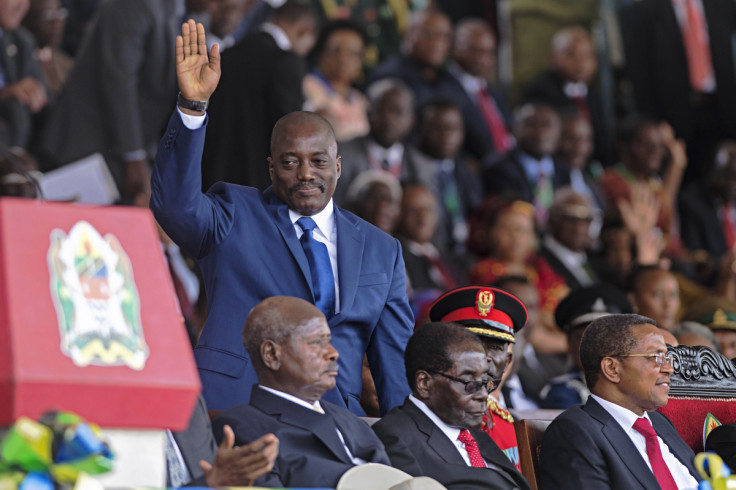DRC: Top court says President Joseph Kabila can stay as leader after 'glissement' ruling

The Democratic Republic of Congo (DRC)'s top court has ruled that President Joseph Kabila can remain in power after his second full term in office if the government fails to hold presidential elections in November 2016, Reuters has reported.
IBTimes UK has been informed separately that the incumbent would expose a legal loophole in a bid to cement his grip on power once his mandate expires. It comes as senior officials in the DRC were warned by the US Embassy in the Congolese capital, Kinshasa, that they face the imposition of sanctions led by the United States if Kabila stays in power beyond the limit set by the constitution.
Kabila is bound to step down from power once his second full term in office comes to an end later this year and elections are scheduled to be held in November. However, there has been growing uncertainty around whether the presidential election would go ahead in time.
As the president wildly attempts to defer the elections by disrupting the electoral process via the use of excessive force and insidious reworking of the justice and electoral system, his efforts have been characterised by one word on everybody's lips: "glissement" or "sliding".
Jordan Anderson, a leading Great Lakes analyst at the London-based think tank IHS told IBTimes UK that many of Kabila's supporters from within his ruling coalition hold the view "that Article 70 of DRC's 2006 constitution says that if, for whatever reason, there is not a new president or a president-elect in place at the time when the current president's term ends, then the sitting president stays in place, until there is a new president elect."
He added: "That's the argument they would make, that technically he can and will remain president".
An uneasy political climate is currently dominating the mood around the country, as the population clamours to have free, fair and timely elections.
"In some ways, we see a lot of parallels between the elections being delayed and Kabila standing as a candidate. They have a lot of similar implications for the kind of things we look at for DRC, which include the implications of mass protests, the risk of police crackdowns - leading to protest brutalities, which could then escalate into rioting. Those are quite similar whether or not it's elections being delayed, or Kabila standing in the elections again."
In January 2015, the police and Republican Guard soldiers shot dead at least 43 people who descended onto the streets of the capital, Kinshasa, and other cities to demonstrate against Kabila's perceived attempts to stay in power. Since then, there has been a brutal political clampdown on Kabila's opponents.
The Congolese embassy in London did not respond to a request for comment by the time of publication.
© Copyright IBTimes 2025. All rights reserved.





















